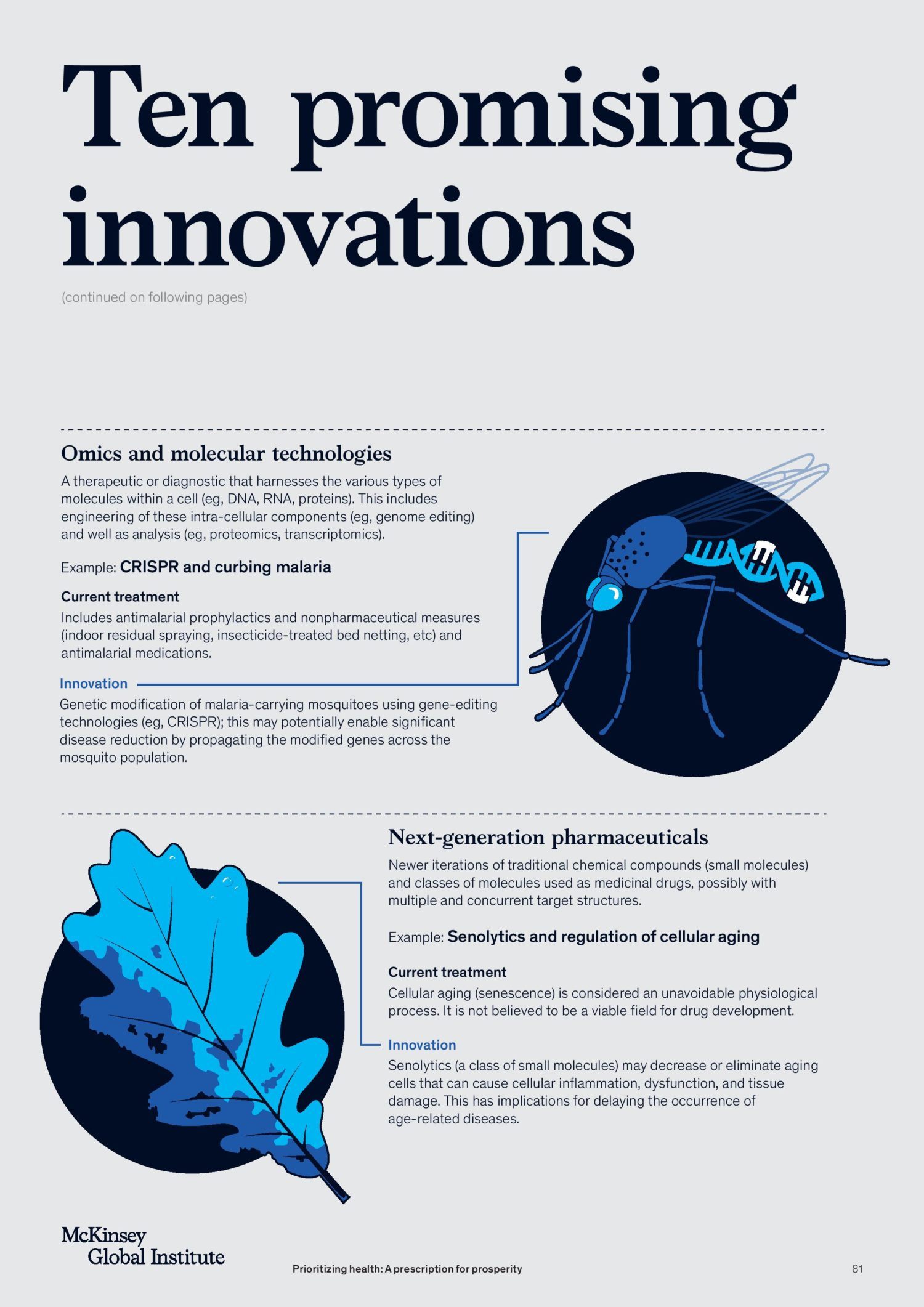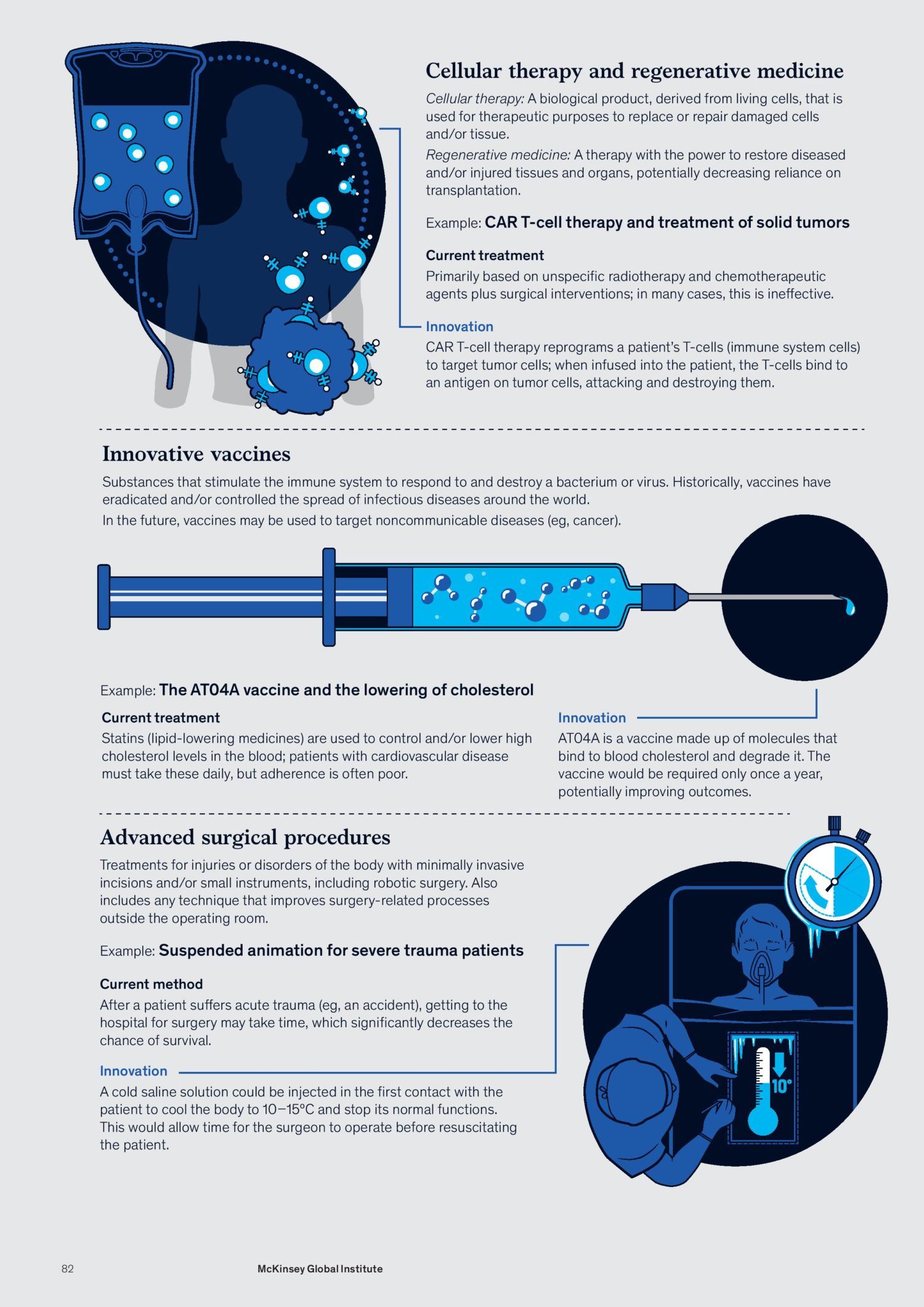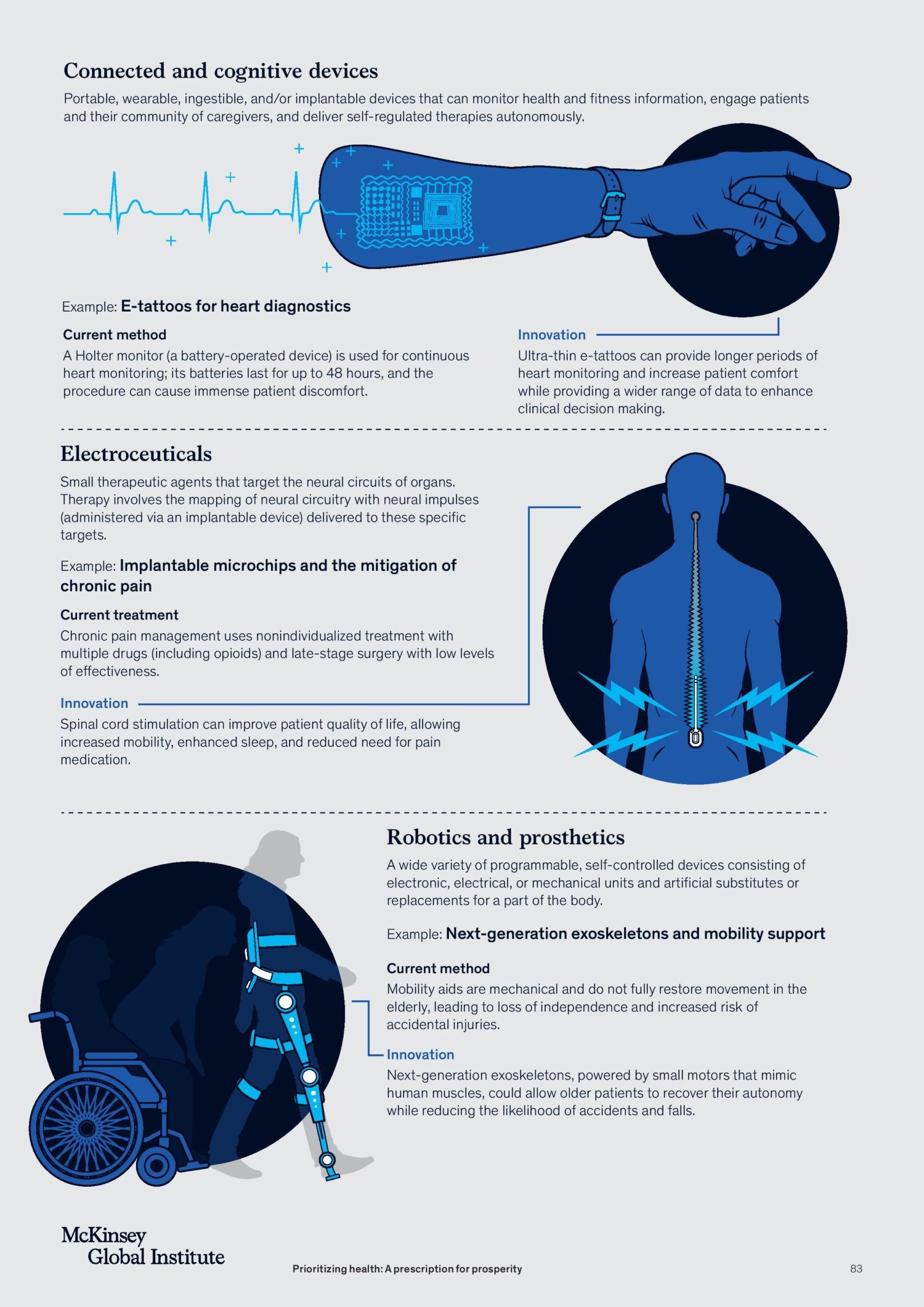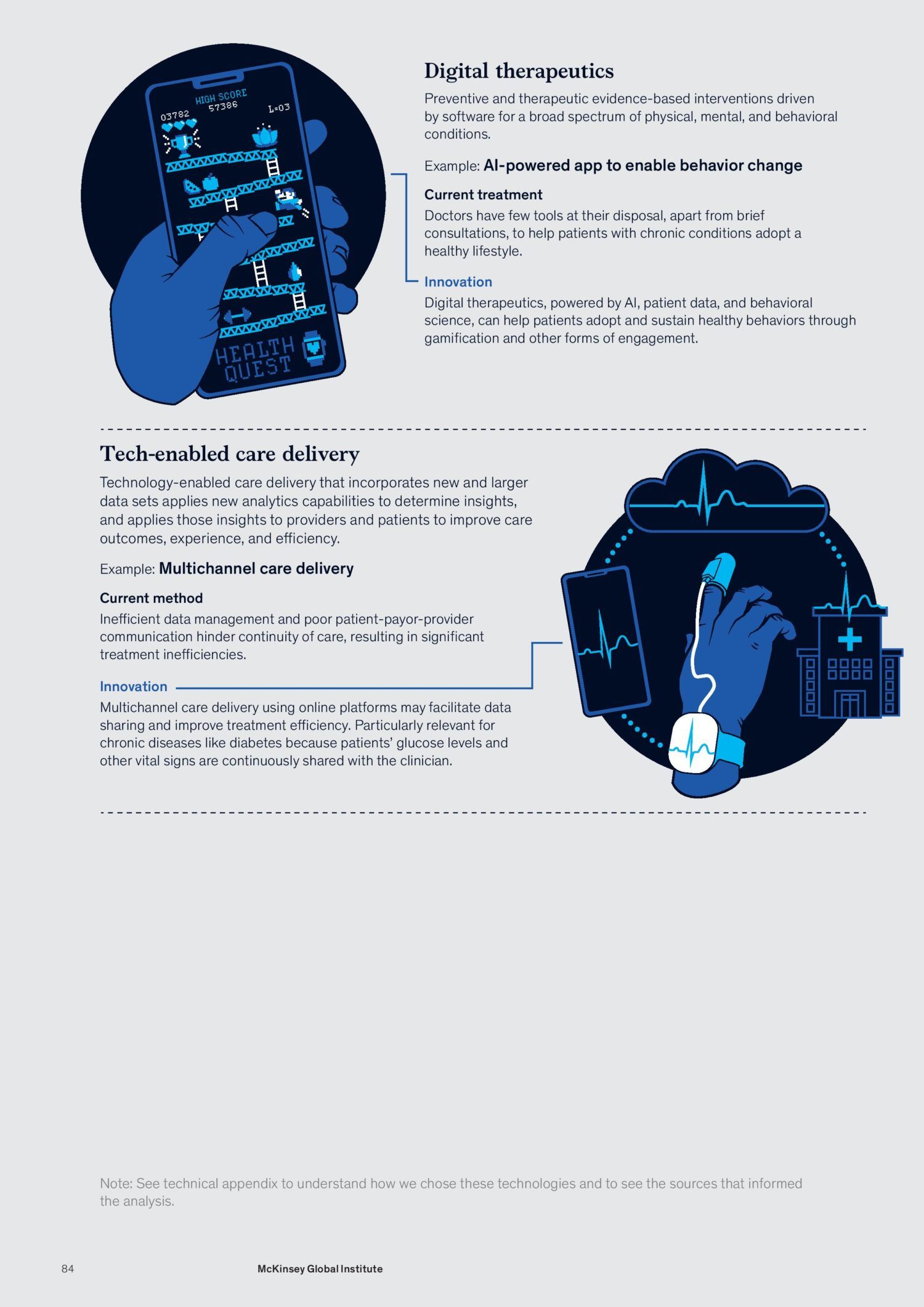What You Should Know:
– 40 percent of the global disease burden could be addressed with known interventions, but that leaves 60 percent unaddressed.
– As part of the recent McKinsey report Prioritizing health: A prescription for prosperity, the McKinsey Global Institute identified ten promising innovations that can reduce total disease burden 6-10% by 2040.
– By identifying and estimating the potential scope of innovations in the pipeline, we find that these technologies could reduce the disease burden by a further 6 to 10 percent, assuming aspirational yet realistic adoption rates by 2040.
According to a recent McKinsey report, 40 percent of the global disease burden could be addressed with known interventions, but that leaves 60 percent unaddressed. Innovation is necessary to tackle the remaining 60 percent of the disease burden.
Innovation can help improve the health of the world’s population by broadening access to known interventions, improving the cost-effectiveness of today’s treatments, finding new ways to prevent diseases, slowing the aging process, and improving the delivery of healthcare. As part of the recent McKinsey report Prioritizing Health: A Prescription for Prosperity, the McKinsey Global Institute systematically surveyed current pipelines in clinical research and development to identify ten promising innovations that can reduce total disease burden 6-10% by 2040. These categories include: omics and molecular technology, next-generation pharmaceuticals, cellular therapy and regenerative medicine, innovative vaccines, advanced surgical procedures, connected and cognitive devices, electroceuticals, robotics and prosthetics, digital therapeutics, and tech-enabled care delivery.
Here is a look at the ten most promising innovations and their impact on the disease burden:




Background/Methodology
To identify the most promising technologies to further reduce disease burden by 2040, the McKinsey Global Institute focused on technologies with potential to impact diseases with the greatest remaining unmet need and assessed current biological understanding of the disease and the effort and excitement surrounding each, measured by research funding. To estimate the potential impact of innovations, they focused on initiatives that are already in early stages of development or being piloted at a small scale. Efforts in this visible pipeline are more likely to be approved and adopted broadly enough to make a material impact on health over 20 years.
